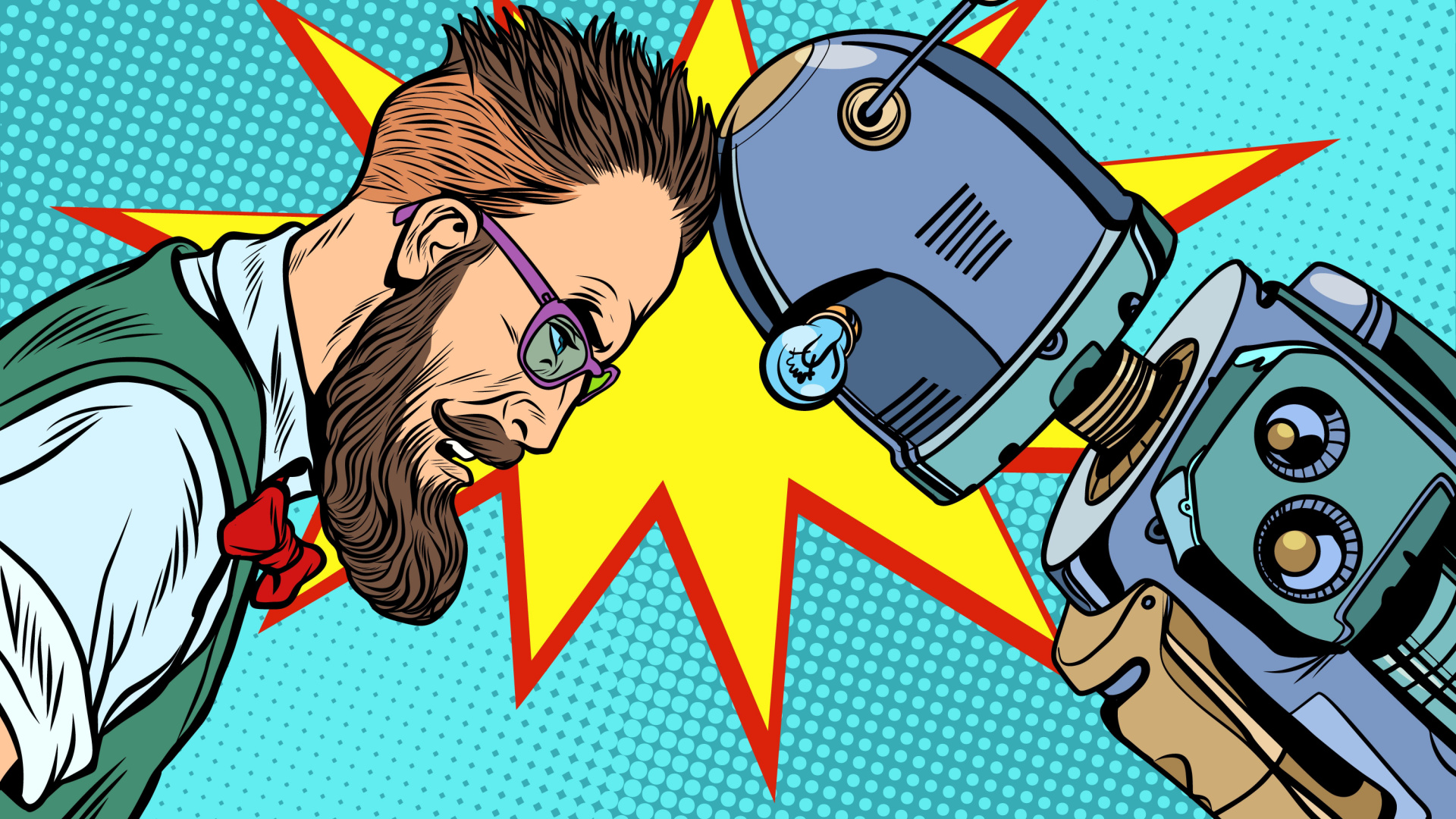Want to make tech journalism worse? Replace news editors with AI
We stand to lose everything

Sign up for breaking news, reviews, opinion, top tech deals, and more.
You are now subscribed
Your newsletter sign-up was successful
Recently, it was reported on that Bild, Germany’s best-selling newspaper, is planning to use AI technology to replace some editorial roles in an effort to cut costs. If that doesn’t already send chills down your spine, then stick with me here and you’ll soon find out why that decision is so ghoulish.
There’s been plenty of discourse about the advent of AI technology and how corporations are using it to cut out staff writer positions from prominent publications in the name of cost-cutting. And there’s also been plenty of talk about the rampant plagiarism and potential site traffic killing of Google’s ‘Search Generative Experience’ (SGE), which we can already see how massively inaccurate and outdated its results are for tech alone, as it simultaneously steals content and pushes down visibility on the tech websites it steals its data from.
These are all related, and give us a clearer picture of the dangers of haphazardly replacing trusted and authoritative human sources with AI that simply steals and recycles content. Keep in mind, these are issues that occur with AI ‘writers’ that most likely still have human editors. Imagine the chaos that would unfold if the practice of replacing human editors with AI ones became widespread. Not only would this mean even more lost jobs, but would put countless publications at risk.

Misinformation, bias, and the lack of accountability
There are several issues outright with the possible advent of AI replacing human editorial jobs, especially for journalism. The two most prominent are that AI possesses inherent biases based on the data it’s trained on, and that, unlike a human being, it cannot explain why it makes its decisions.
For instance, two separate studies conducted on the political leanings of ChatGPT’s AI showed biases in favor of left-leaning political views. Gizmondo's experiment with ChatGPT found that it also possesses more traditional and discriminatory biases in its prompt answers. The test found that if you ask ChatGPT for 10 names for a plumber it will give you all male names, and if you ask for 10 kindergarten teacher names it will provide only female ones.
Coupled with its penchant for switching ethical sides on the fly with no clearly defined reason and you have a system that could be given sweeping access to massive editorial power without any accountability. Not to mention the misinformation issue that’s already widespread among AI, fabricating information and citations, but with no human in charge to at least mitigate the damage.

Massive feedback loop, incoming
Delving into that last point, how would AI editors even begin to catch errors made by human writers, let alone AI writers? With the former, human staff writers tend to be talented and knowledgeable people with a vested interest in the field that they write, and this absolutely applies to tech journalists who must possess highly specialized knowledge that cannot be replicated by AI.
Sign up for breaking news, reviews, opinion, top tech deals, and more.
Editors have the ability to choose what coverage should be at the forefront of a publication, while ensuring that any works are polished, accurate, and wholly original ideas that aren’t in violation of copyright laws. An AI editor has none of these abilities and as it’s essentially a program with no morals or investment in the industry it’s influencing outside the data its fed or the humans managing it, it cannot perform any of the duties of a proper editor save for finding some grammatical and spelling errors.
The latter point is even more disturbing, and unfortunately a possible future thanks to corporations looking to cost cut at any cost. If you employ AI writers, whose works are being scrapped by AI databases like human writers have been dealing with now, and then AI is being made into editors to edit these plagiarized works, this will result in a massive feedback loop. One with endless recycled, stolen, and flat-out wrong content that’s going unchecked.

What we stand to lose
This all means that editorial decisions wouldn’t be coming from human editors who want the best and most relevant stories to be published, or prioritize products that are both high quality and safe, factors that are vital for tech publications to operate. If readers can’t trust the buying advice they receive from tech sites, then those sites will eventually collapse.
There’s also another major factor that needs to be considered when applying the concept of AI tech editors. The first is that AI cannot have a genuine human opinion on any given topic or product, which means that op-eds, featured articles, and industry deep dives are out, as is extensive onsite event coverage. The second is that AI cannot handle physical products, which means product reviews aren’t possible either. Editors are not only responsible for producing a significant amount of this content, but they’re also responsible for editing and publishing this content from other staff writers.
Without the ability to perform these duties, the advent of AI editors would effectively erase any new content from the industry, replaced by articles made of outdated scraped content resulting in that dreaded feedback loop. This has grave consequences, especially with the tech industry that relies heavily on information being as accurate and precise as possible so buyers can make informed decisions on expensive products. Eventually, buyers will get wise to the fact that they’re being fed garbage and will refuse to mindlessly consume it, resulting in tech journalism tanking.
Replacing editorial staff with AI isn’t going to cause an extinction-level threat, like some powerful people like to parrot to distract you from the actual issues. And AI cannot replace human editors and writers. However, the true danger is that soulless corporations will destroy entire industries in an attempt to do so, only to find that it couldn’t be done in the end.

Named by the CTA as a CES 2023 Media Trailblazer, Allisa is a Computing Staff Writer who covers breaking news and rumors in the computing industry, as well as reviews, hands-on previews, featured articles, and the latest deals and trends. In her spare time you can find her chatting it up on her two podcasts, Megaten Marathon and Combo Chain, as well as playing any JRPGs she can get her hands on.